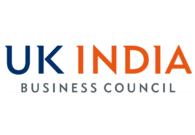Why visas might not be the FTA deal-breaker so many think
Every media article on the UK-India FTA negotiations seems to claim that India’s biggest ask, and the negotiation’s biggest hurdle, will be visas. The UK PM was asked about it in Parliament on 5 January, it was the first question Minister Piyush Goyal was asked by the press when he and Anne-Marie Trevelyan launched the negotiations on 13 January, and Ms Trevelyan was asked when answering questions in Parliament on 20 January. It seems front of mind for the media and for MPs.
The UK’s immigration policy cast a shadow over Theresa May’s visit to India as Prime Minister in November 2016. But, over 5 years on, are such a pivotal, make or break, issue in these negotiations?
Why visas may not be a deal-breaker
There are several reasons to believe that visas will not be the biggest issue in the negotiations.
Minister Goyal played down the importance of visas at the press launch and, at a subsequent event with businesses, he said the media was “sullying” the narrative around the negotiations by majoring on visas.
This may be because the FTA offers so many other opportunities for the Indian economy. For example, reduced tariffs and standards alignment would increase India’s exports of textiles, leather goods, food and drink, pharma and other products. This would create and support tens, maybe hundreds of thousands of jobs for low- and middle-income Indians. Could Mr Goyal’s priority be the export of Indian goods and services, rather than the export of its talent?
Much has changed since Theresa May’s 2016 visit, for the better. Indian students can more easily work in the UK after graduation. The cap on the number of skilled worker visas has been removed. The minimum salary threshold for work visas has been reduced. 40% of all work visas issued by the UK goes to an Indian – almost as much as the rest of the world combined. And in May last year the Governments signed a Migration and Mobility Partnership.
Why visas may be a deal-breaker
Despite the above points, there is also a case to be made that visas and labour mobility will still be central to the negotiations. For instance, the ICT/digital sector is a major employer in India and is one of its important growth drivers. India is also the source of genuine world-leading capability, and this capability is in demand in the UK where the digital sector is hungry for talent. There is also no doubt that the movement of people between our countries is of critical importance, and very much a positive, for both countries in terms of social ties as well as economic ones.
Conclusion?
I don’t think visas will be a deal-breaker. Aspects of labour mobility will, however, be up for discussion. For instance, the mutual recognition of professional qualifications that would facilitate increased movement of, say, lawyers, accountants, and architects.
To my mind, it is these more technical aspect of labour mobility that will be on the negotiating table. Alongside tariff and not tariff barriers that will make it easier for companies, including SMEs, to trade and invest between India and the UK.

 By Kevin McCole
By Kevin McCole 

